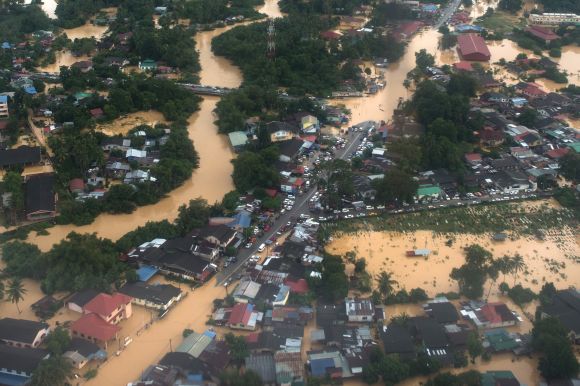The rainy season is in full effect now with many parts of the country experiencing constant downpour each day. And with the tide phenomenon that is expected to occur in the Straits of Tebrau from the 24th to 30th of November is likely to mean more trouble for affected locals.
Malaysia has had its fair share of flood woes in the past and since it’s the rainy season again, the folks at Communications and Multimedia Consumer Forum of Malaysia (CFM) have decided to take a more proactive role to ensure effective communication during these potentially trying times remains strong.
CFM have sent us a long list of tips that are designed to help the public better manage as well as communicate more effectively during times of emergency. We at SoyaCincau.com value your time and as a result have condensed their tips for your convenience.
Here are the 6 communication tips during floods:
1. Patience, patience, patience
CFM strongly urges the public to be patient when communicating. If your call or msg is unable to get through to the other person, wait awhile before trying again. The communication infrastructure is put under a lot of stress during times of emergency and can get congested due to the high volume of messages. So, if everyone incessantly tries to communicate, it becomes less likely that any messages will get through at all.
It’s sort of like traffic congestion, really. If everyone leaves their office at 6pm, then nobody would be getting anywhere anytime soon.
2. Save bandwidth, send a text instead
We know some of you have completely abandoned the SMS service, because frankly who needs it when you have free messaging applications like Whatsapp? But, CFM advises users to use this ‘retro’ form of communication during emergencies because they take up less bandwidth and will put a lighter load on the communication system.
If we were to build on our traffic jam analogy, a call would be that large BMW 750Li, while a text message would only be a little Vespa zipping along between traffic.
3. Keep your energizer bunnies at full charge
Needless to say, without power, that flagship smartphone you paid thousands of ringgit for is about as useful as a brick. Probably less useful since its so light and thin, so CFM encourages its consumers to charge up your devices and power banks when there is power. That way, if and when the power goes down, you will still have enough juice to keep your phones running.
Of course, saving power also means using your devices less often. Save them for emergencies and only use them when you absolutely have to, not to post a selfie on Instagram. If your device has power saving mode, it is recommended to enable it to extend its battery life.
4. Limit online activities
Speaking of Instagram, CFM implores everyone to limit their online activity to avoid coverage congestion. Actions like uploading photos, videos or sharing voice clips on social media consumes a lot of bandwidth and by now we’re sure you all know what that means. Yep, you guessed it, congestion.
10 points to Gryffindor!
5. Use the radio or contact authorities for information
We’ve all seen disaster movies. We’ve all seen the scene where the protagonists are trapped in a danger zone and are waiting by the radio with bated breath for information that could very well save them. Well, it turns out there is some truth in those scenes as CFM says that it becomes an important source of news during an emergency. However, they have stated that consumers should ensure that they have an adequate battery supply before doing so.
You can also get the latest updates from local emergency response services or RELA members so it’s a good idea to keep their contact handy.
6. Keep calm and don’t panic
Well, keep calm. There really is no use in panicking during an emergency.
CFM informs us that they aren’t sitting on their hands at their end either. The Ministry of Communications and Multimedia (KKMM) and the Malaysian Communications and Multimedia Commission (MCMC) are working with all Telecommunications Service Providers (SPs) to provide temporary base communication station towers at several affected areas as a support to enhance the coverage during floods or natural disasters.
However, they did add that priority will be given to places that are in need of it the most. They also ask for your understanding that natural disasters can cause unavoidable damage to infrastructure in affected areas which would result in less than stellar coverage.
Teamwork is key in these situations so do be considerate and work together to overcome times of emergency.






